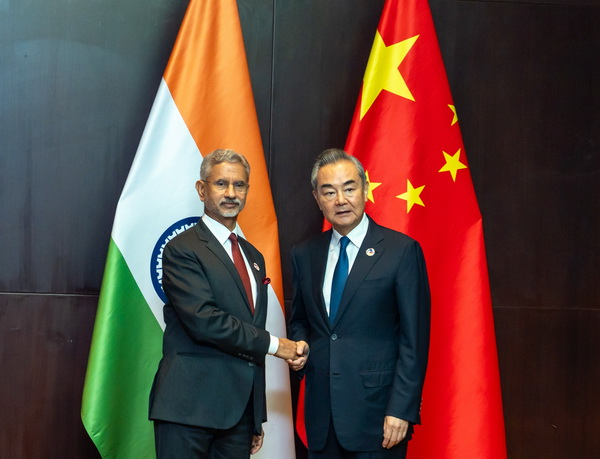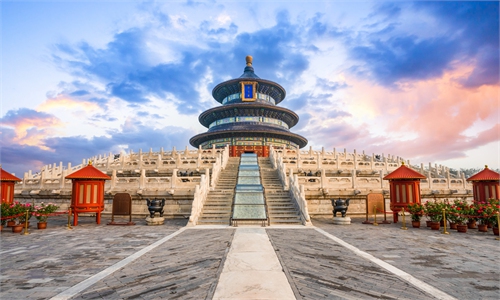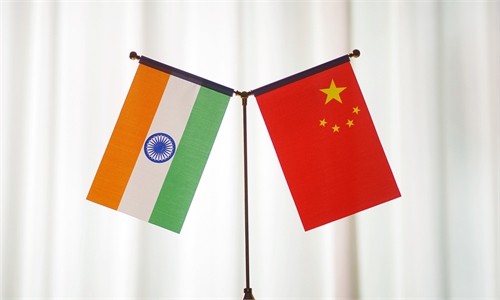Chinese, Indian FMs meet, agree to promote progress in border affairs consultations

Chinese Foreign Minister Wang Yi meets with Indian External Affairs Minister Subrahmanyam Jaishankar in Vientiane, Laos, on July 25, 2024. Photo: Chinese Ministry of Foreign Affairs
Chinese Foreign Minister Wang Yi met with Indian External Affairs Minister Subrahmanyam Jaishankar in Vientiane, Laos, on Thursday and the two sides agreed to jointly commit to maintaining peace and tranquility in the border areas and promote new progress in border affairs consultations.
Wang, also a member of the Political Bureau of the Communist Party of China (CPC) Central Committee, is paying an official visit to Laos from July 25 to 27 and is scheduled to attend a series of meetings of foreign ministers of southeastern and eastern Asian countries in Vientiane.
While meeting with Jaishankar in Vientiane on Thursday, Wang said that in the face of the current complex international situation and severe global challenges, China and India, as two neighboring large developing countries and major emerging economies, should strengthen dialogue and communication, enhance understanding and mutual trust, properly manage conflicts and differences, and develop mutually beneficial cooperation.
Both sides should take on their responsibility to history, their peoples, and the world, with wisdom that transcends conflicts, differences and frictions, and promote the improvement and sustainable development of China-India relations, said Wang.
Wang stated that China-India relations have an important impact beyond the bilateral scope. The improvement of bilateral relations should reflect the strategic pattern of two emerging developing countries, the handling of differences should reflect the political wisdom of two ancient civilizations, and the response to global challenges should reflect the solidarity and cooperation of Global South countries.
Hopefully both sides can move toward each other, actively explore the correct way for two neighboring major countries to coexist, and guide all sectors to establish a positive perception of each other.
Wang emphasized that returning China-India relations to the right track is in the interest of both sides and is also the common expectation of the Global South countries.
Jaishankar said India and China are the two most populous countries, two major emerging economies, and ancient civilizations with long histories. Maintaining a stable and predictable development of bilateral relations is in the interest of both sides and is of special importance to maintaining regional peace and promoting multipolarity.
India and China have extensive intertwined interests and also face the shadow of border incidents, but India is willing to find ways to resolve differences with a historical perspective, strategic thinking, and an open attitude, and to promote bilateral relations back to a positive and constructive track, said Jaishankar.
Both sides agreed to jointly commit to maintaining peace and tranquility in the border areas and to promote new progress in border affairs consultations, according to a release from the Chinese Foreign Ministry.
The two sides said that they will strengthen communication within the East Asia cooperation platform, the Shanghai Cooperation Organization, the Group of 20, BRICS and other frameworks, jointly practice multilateralism, and safeguard the legitimate rights and interests of developing countries.
On July 4, Wang met with Jaishankar in Astana, Kazakhstan, on the sidelines of a two-day meeting of the Council of Heads of State of the SCO, during which the two sides agreed to work for stability in the border areas and hold a new round of consultations on the boundary issue at an early date.
Frequent high-level exchanges between China and India underscore both countries' commitment to resolving border disputes through diplomatic channels and dialogues, despite existing divergences. Both sides are making efforts to prevent these differences from escalating into conflicts, which is particularly important given the current international context, Qian Feng, director of the research department at the National Strategy Institute at Tsinghua University, told the Global Times on Friday.
Through communication and exchanges, China and India can build political trust, paving the way for bilateral relations to return to a positive trajectory, said Qian.
While both nations work toward improving their relations, the US continues to sow discord. On Thursday, US Senator Marco Rubio introduced a bill proposing to elevate US relations with India to counter China and support India's response to "increasing threats" to its territorial integrity, according to media reports.
Qian noted that in recent years, the US has intensified efforts to strengthen ties with India, aiming to have India play a larger role in countering China. US' support for India is motivated by its own strategic needs to counter China.
Given Rubio's hardline stance against China and his negative influence on China-US relations, it is unsurprising to see him putting forward such a bill, said Qian, noting that the bill not only involves the China-India border issue but also affects China-US relations and the region's complex geopolitical issues, and whether the bill will pass remains to be seen.
Analysts said India should remain clear-minded about US' intentions. They note that any external interference in border issues could undermine the current positive momentum in China-India communications and complicate the regional situation.




